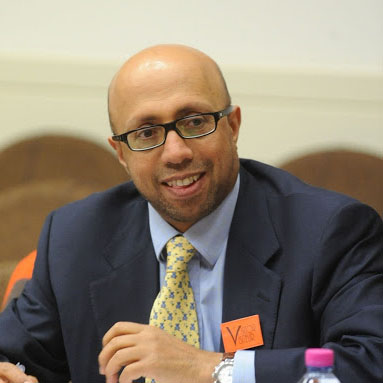Over the past few years, the geographically strategic Gulf region has been adjusting to new internal and external realities on the political, economic, and security fronts, some of its traditional balances and logics being challenged by a wide range of parameters such as the emergence of a new generation of GCC rulers, a growing Russian and Chinese presence in the Middle East, and growing tensions between the US and Iran, locked in a dichotomized logic of “maximum pressure” vs. “maximum resistance.” It is worth underlining that many of these parameters have directly come from or have been somewhat affected by the policy choices and general attitude towards the region brought about by the Trump administration. On one hand, some evolutions of regional dynamics, the most important of which is perhaps the beginning of the Gulf crisis within the GCC in June 2017, illustrate how leaders of the Arabian Peninsula have at times felt emboldened by a new US President with a transactional approach to international relations who seemed ready to support their claims in the region without interfering. On the other hand, the fast-paced and sometimes surprising or seemingly irrational stances adopted by President Trump, as well as the specter of a “US disengagement from the Gulf” which arguably does not exist outside political discourses and strategic calculi have increasingly pushed them to look for solutions to supplement their strategic relationship with their traditional American partner. While the impact of the US policies in the region are certainly extremely important in explaining many evolutions of regional dynamics, it is, however, at least as crucial to analyze them against the backdrop of a broader multipolarization of the Gulf which go beyond the sole US parameter (although it is obviously more or less directly related to it). This workshop is built with the conviction that regional analyses need a deeper acknowledging of the shifting dynamics of the Gulf as a result of new powerplays and evolving strategies from major actors both inside and outside of the region. Within this framework, it more specifically offers to focus on how European powers play out in this reorganization of international relations of the Gulf. This subject is not only relevant because of the historic and everchanging presence of these actors in the region, and how important they have always been in diversification strategies of the leaders from the Arabian Peninsula, but also because European powers increasingly find themselves at a crossroads, in the context of Brexit, difficult relationships with their American ally, and a growing momentum to work around – if not with – Russia and/or China in the Middle East. With the 11th edition of the GRM taking place at a time when the Gulf region has faced numerous turbulent years, and when the world is looking to the United States in an election year to try and get a pulse of what will happen, this workshop comes at a key moment to assess in a comprehensive way what other crucial dynamics are impacting the Gulf region and how such dynamics will continue to do so in the near future.
3 DAYS / 12 Workshops
MORE THAN 300 ACADEMIC PAPERS
Description and Rationale
Objectives and Scope
The aim of this workshop is to investigate how European powers’ foreign and security policies in the Gulf region, including the bilateral and multilateral relationships they build with their partners in the Arabian Peninsula but also the way they engage Iran and Iraq, actively participate in the growing multipolarization of this region – on their own, and in articulation with the increasing presence and influence of the BRICS in the area. Crucially, this workshop will not be addressing these topics solely from the perspective of external powers looking in, but also from the perspective of regional powers looking out. Indeed, if the recent years have showed anything, it is that the Gulf countries, particularly Saudi Arabia, the UAE and Qatar, have acquired the means to deploy specific influence and power strategies not just onto the rest of the Middle East and North Africa (MENA) region but well beyond. Through targeted investments with their sovereign wealth funds, strategic partnerships as well as the development of specific cooperation or trade segments with a growing number of outside powers, they are making the most of the multipolarization of their direct environment and of the broader global arena.
Contribution to the Gulf Studies
This workshop can be seen as a direct response to a literature which remains very US-centric despite major shifts at the regional and international levels pointing to a complexification of power dynamics both amidst the Gulf Regional Security Complex and in terms of the numerous global actors pushing their specific – and sometimes competing – agendas within the Gulf region.
Consequently, this workshop seeks to expand on the current framework to reflect on broader dynamics in place as the Gulf moves towards some form of multipolarization. It will bring together different research areas that are critical to establishing comprehensive regional social, political, economic, and security strategies between Europe, the EU, the GCC states and the wider Gulf region. It seeks to shine a light on contemporary and important regional issues such as investment, trade cooperation, energy transition, economic diversification, environment and climate change within the context of Europe’s relation to the region. The workshop’s interdisciplinary approach intends to produce a book with papers to be selected with such a published volume on Europe’s relations with the Gulf region in mind.
Anticipated Participants
We will be interested to discuss the above-mentioned topics from various perspectives. For instance, we welcome papers:
- on the way policymaking and perceptions of the regional dynamics in Europe (through country-specific or more inclusive studies) differ from, clash with, or complement the US
- on one particular aspect of bilateral and multilateral international relations between Europe and the Gulf (for example, an examination of EU-GCC investment and trade cooperation, cultural ties, security issues, etc.) and what impact, if any, it has on the overall dynamics of the region
- case studies on efforts by one or several Gulf countries to rely on European partners in their diversification schemes.
- EU vs. EU member states and their approach to the Gulf region
- Papers with a focus on functional cooperation between Europe and the Gulf States with an analysis on areas that have been successful or less than successful in the past.
- A poll study of the view of the EU and its functions within the Gulf and vice versa
- Stabilization and security paradigms, which include EU-Iraq, EU-Yemen, and EU-Iran relations
- The role of EU in arms sales to the GCC and the wider Gulf region
- Evaluation of past programs within the EU-GCC framework such as the Joint Action
- Programme (JAP) or the negotiations over the Free Trade Area (FTA) agreement
Selected Readings
Khalid Almezaini and Jean-Marc Rickli (eds.), The Small Gulf States: Foreign and Security Policies (Routledge, 2016)
Abdullah Baabood and Geoffrey Edwards, “Reinforcing Ambivalence: The Interaction of Gulf States and the European Union”, European Foreign Affairs Review, 12, 2007, pp. 537-554
Abdullah Baabood, “Dynamics and Determinants of the GCC States’ Foreign Policy, with Special Reference to the EU”, in Gerd Nonneman, Analyzing Middle Eastern Foreign Policies and the Relationship with Europe (Routledge, 2005)
Silvia Colombo, Bridging the Gulf: EU-GCC Relations at a Crossroads (Istituto Affari Internazionali – IAI, 2014)
Geoffrey Edwards, “The EU’s Foreign Policy and the Search for Effect”, International Relations, 27 (3), 2013, pp. 276-291
Anoushiravan Ehteshami, Globalization and Geopolitics in the Middle East: Old Games, New Rules (Routledge, 2007)
F. Gregory Gause, The International Relations of the Persian Gulf (Cambridge University Press, 2010) Michael Hudson and Mimi Kirk (eds.), Gulf Politics and Economics in a Changing World (World Scientific, 2014)
Jane Kinninmont, A Post-Brexit Britain Would Double Down on the Middle East Alliances (Chatham House, 2016)
Matteo Legrenzi, The GCC and the International Relations of the Gulf: Diplomacy, Security and Economic Coordination in a Changing Middle East (IB Tauris, 2015)
Emma Soubrier, “The European Response to the Saudi Attacks: A Careful Balancing Act”,
September 30, 2019 https://agsiw.org/the-european-response-to-the-saudi-attacks-a-careful-balancing-act/
Antoine Vagneur-Jones, Global Britain in the Gulf: Brexit and relations with the GCC
(Fondation pour la Recherche Stratégique – FRS, 2017)


